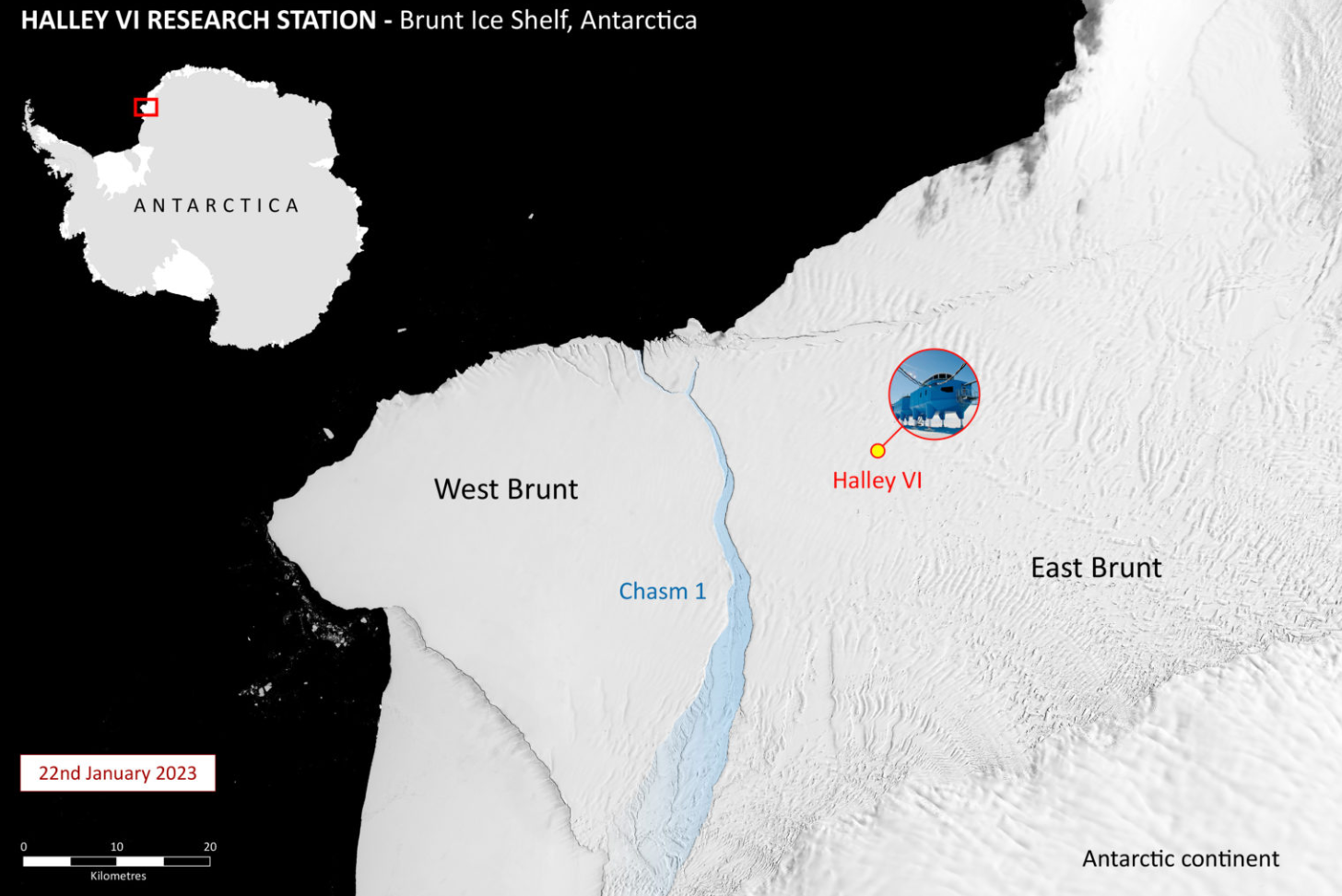Giant iceberg the size of Greater London breaks free from Antarctica
The nearly 600 square mile iceberg calved on Sunday
An iceberg the size of Greater London has calved from an Antarctic ice shelf but is not linked to the climate crisis, according to the British Antarctic Survey.
The vast iceberg, which is nearly 600 square miles (1550 sq km), broke free from the 492ft-thick(150m) Brunt Ice Shelf on Sunday.
It is the second mass to break off in the last two years, BAS said, after a crack known as “Chasm-1” fully extended through the ice shelf. BAS describes Brunt as “probably the most closely monitored ice shelf on Earth”.
Satellite monitoring first revealed changes in Chasm-1 a little over a decade ago after it lay dormant for at least 35 years.
Calving events have been unpredictable at the Brunt Ice Shelf due to its complex structure. In February 2021, another iceberg, which came to be known as A74, calved from the shelf and drifted into the Weddell Sea.
BAS said that the new iceberg is slightly larger than A74, and is likely to drift in the same direction due to the current. It will be named later by the US National Ice Center.
Calving events have been unpredictable at the Brunt Ice Shelf due to its complex structure. BAS carries out research at the Halley VI Research Station on top of the the ice shelf but it has been unoccupied for the last six winters because of the complex and unpredictable glaciological situation.
“This calving event has been expected and is part of the natural behaviour of the Brunt Ice Shelf. It is not linked to climate change,” said Professor Dominic Hodgson, BAS glaciologist. “Our science and operational teams continue to monitor the ice shelf in real-time to ensure it is safe, and to maintain the delivery of the science we undertake at Halley.”

While the new iceberg is not down to the impacts of global heating, the climate crisis is having increasingly dire but complex consequences at the world’s poles, particulary in Antarctica.
The Antarctic Peninsula is heating up five times faster than the global average, according to the UCAR Center For Science Education, warming almost 3C in the past 70 years. In the past three decades, Antarctica has lost more than three trillion tons of ice, leading to rapid global sea-level rise.
Research published earlier this month also revealed that two-thirds of the world’s 215,000 glaciers - not including those on ice sheets in Greenland and Antarctica - will have melted by the end of the century on the current trajectory of the climate crisis, faster than scientists previously believed.
Join our commenting forum
Join thought-provoking conversations, follow other Independent readers and see their replies
Comments


Bookmark popover
Removed from bookmarks